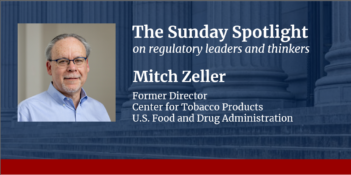
Scholar argues against using agency interpretations of immigration law in criminal deportation cases.
Juan Esquivel-Quintana, a non-U.S. citizen living in California, faced deportation because he had been convicted of statutory rape under California law. After analyzing the scope of the rape law at issue, the Board of Immigration Appeals (BIA) interpreted the law as an aggravated felony, which initiated deportation proceedings. On appeal, the U.S. Court of Appeals for the Sixth Circuit deferred to the BIA’s interpretation of the law using a legal framework established in Chevron v. Natural Resources Defense Council.
Mr. Esquivel-Quintana’s case eventually reached the U.S. Supreme Court, which held that Chevron did not apply to the case and reversed the Sixth Circuit’s decision.
In a forthcoming paper, Rebecca Sharpless, a professor at the University of Miami School of Law, uses Mr. Esquivel-Quintana’s case to argue that the Supreme Court has provided inadequate guidance on Chevron’s application in the criminal deportation context. Sharpless proposes her own theory for how courts should approach deportation cases initiated by a criminal conviction: Courts should not be obligated to defer to reasonable agency interpretations of ambiguous criminal immigration laws. According to Sharpless, courts should not defer to agencies when analyzing any grounds for deportation that is based on a crime.
Under Sharpless’s theory, courts should not defer to agency interpretations of ambiguous “crime-based” deportation laws, as the Sixth Circuit did in Mr. Esquivel-Quintana’s case. Instead, courts would be able to widen their review and apply their “expertise in criminal law and general statutory construction.” This change, Sharpless argues, would increase the fairness of decision-making in the high-stakes deportation context.
In other types of cases involving agency interpretations of ambiguous statutes, courts defer under Chevron because agencies possess greater expertise and democratic accountability than courts. But, Sharpless argues, in the criminal immigration context, these values of expertise and accountability lead to the opposite conclusion—that courts should not defer to agency readings of crime-based deportation laws.
For example, expertise would decrease if courts deferred to agency interpretations, Sharpless states. Crime-based deportation laws often require the BIA to examine federal criminal law terms, such as “theft and burglary,” that are not specific to immigration law. In Mr. Esquivel-Quintana’s case, for example, the BIA analyzed not immigration law, but instead federal case law on statutory rape to make its determination. Since these interpretations take the BIA “outside” its area of expertise, Sharpless contends that courts would derive no added benefit from adhering to the agency’s reading of the law.
Sharpless further states that courts deferring under Chevron trust that agencies, as part of the executive branch, have more political accountability than courts do. Because executive branch agencies can create policy when they interpret ambiguous laws, the political accountability of those agencies matters, according to Sharpless. In the context of deportation, Sharpless questions the political accountability of immigration agencies. For example, although the BIA does not consist of political appointees, the U.S. Attorney General—a political appointee—can still overrule BIA decisions. Given the uncertainty surrounding the amount of influence politics have over the BIA, the extent to which it is answerable to the public remains unclear. In light of these ambiguities, Sharpless contends that the BIA’s “awkward” place in the political spectrum undermines broader goals of accountability.
Sharpless is not alone in her views against deference in the criminal deportation context. Michael Kagan, a professor at the University of Nevada, Las Vegas William S. Boyd School of Law, advances a similar argument. Noting the Court’s vague attitude towards deference to agencies in criminal deportation cases, he contends that the potential outcomes of immigration agency decisions, like deportation, “call for more rigorous judicial review.” In the same vein, Sharpless emphasizes the emotional and mental tolls of losing a deportation case. Because deportation separates individuals from their families and homes, Sharpless maintains that courts should review crime-based deportation cases more closely.
To be sure, although the Supreme Court’s stance on deference in the context of criminal deportation cases remains unclear, the Court has already deferred in noncriminal immigration contexts. In a recent decision, for example, the Court used Chevron deference to uphold an agency interpretation of an immigration law provision related to visa applications.
But, as Sharpless notes, under current law, criminally convicted individuals facing deportation like Mr. Esquivel-Quintana must contend with an inconsistent and, perhaps, unpredictable judicial approach to their appeals.



